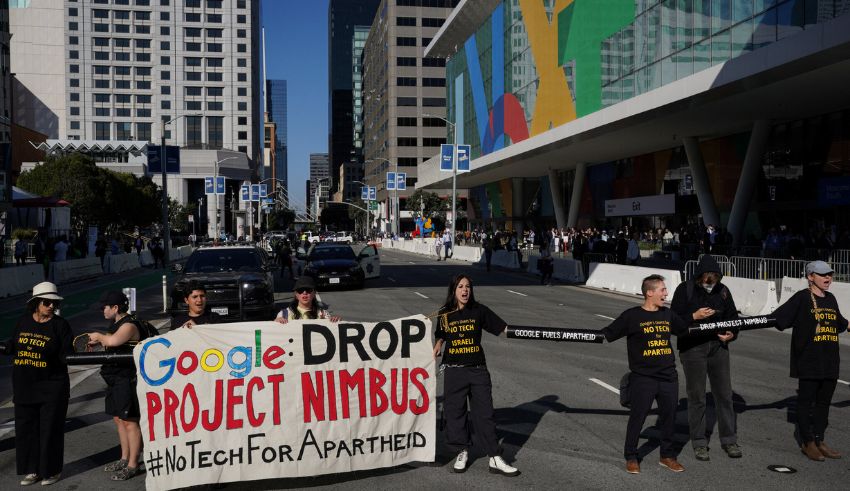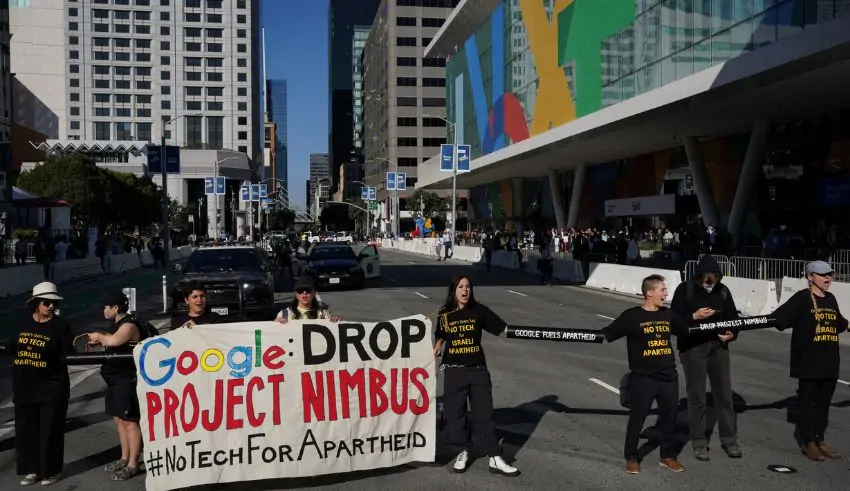

(C) The New York Times
For years, Google fostered a progressive work culture that encouraged employees to bring their whole selves to work. Googlers actively engaged in internal discussions, street protests, and advocacy for change on various global and company-specific issues. They challenged the treatment of executives accused of sexual misconduct, advocated against controversial contracts, and pushed for workforce diversity.
However, the situation changed dramatically when Google signed a $1.2 billion contract in 2021 to provide cloud computing and artificial intelligence services to the Israeli government. The contract, known as “Project Nimbus,”became a flashpoint for employee activism.
Last week, employees at Google offices in New York and Sunnyvale, California held sit-in protests to voice their opposition. They claimed that Israel was using Google’s services to harm Palestinians. The group organizing the protests, No Tech For Apartheid, accused Google of complicity and demanded accountability.
Google’s reaction was swift and decisive. The company called the police to disperse the protesters and subsequently terminated the employment of those involved. The total number of terminated staff now exceeds 5012. CEO Sundar Pichai defended the decision, emphasizing that Google is a business and not a platform for disruptive activism. He stated that employees should not disrupt coworkers or make them feel unsafe.
The Google case reflects a broader trend. Companies, wary of political controversies, are increasingly cautious about taking sides on divisive issues. The Gaza conflict has divided employees in ways that previous debates (such as those related to police brutality) did not. Younger workers and customers expect brands to align with their values, leading companies to stake out public positions on social issues.
As the debate over employee activism intensifies, questions remain: What is the true cost of dissent within a corporation? How can companies balance their business interests with employees’ rights to free speech? The Google saga serves as a powerful reminder that the intersection of personal convictions and corporate policies is a complex terrain—one where the stakes are high and the consequences far-reaching.
The UAE launched regional economic deals while building its Asia network. Vietnam signed its second Comprehensive Economic Partnership Agreement in…
This Saturday, Estoril Praia, one of the best football teams in Portugal will wear a notable green and yellow kit…
Hong Kong Post announced it is stopping the mailing of goods to the United States, referring to what they perceive…
Honda to Transfer U.S.-Bound Civic Hybrid Production from Japan to Indiana Honda brings production of its five-door Civic hybrid back…
The Barcelona Open Banc Sabadell presents exciting ATP 500 matches on Wednesday, with important clashes scheduled on different courts. The…
Filipino FIDE Master Christian Gian Karlo Arca who is 16 years old won a major victory by beating German Super…
This website uses cookies.
Read More